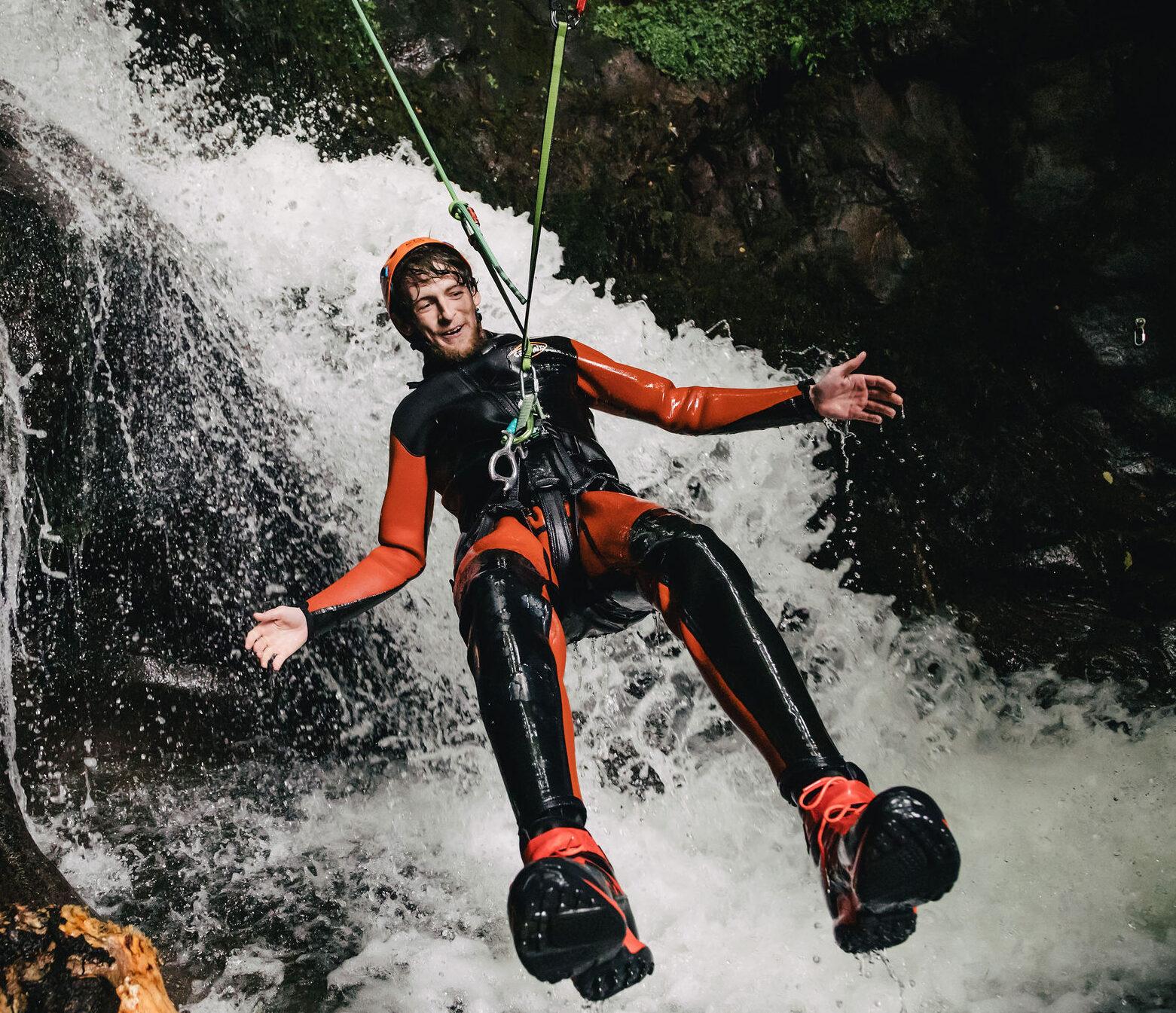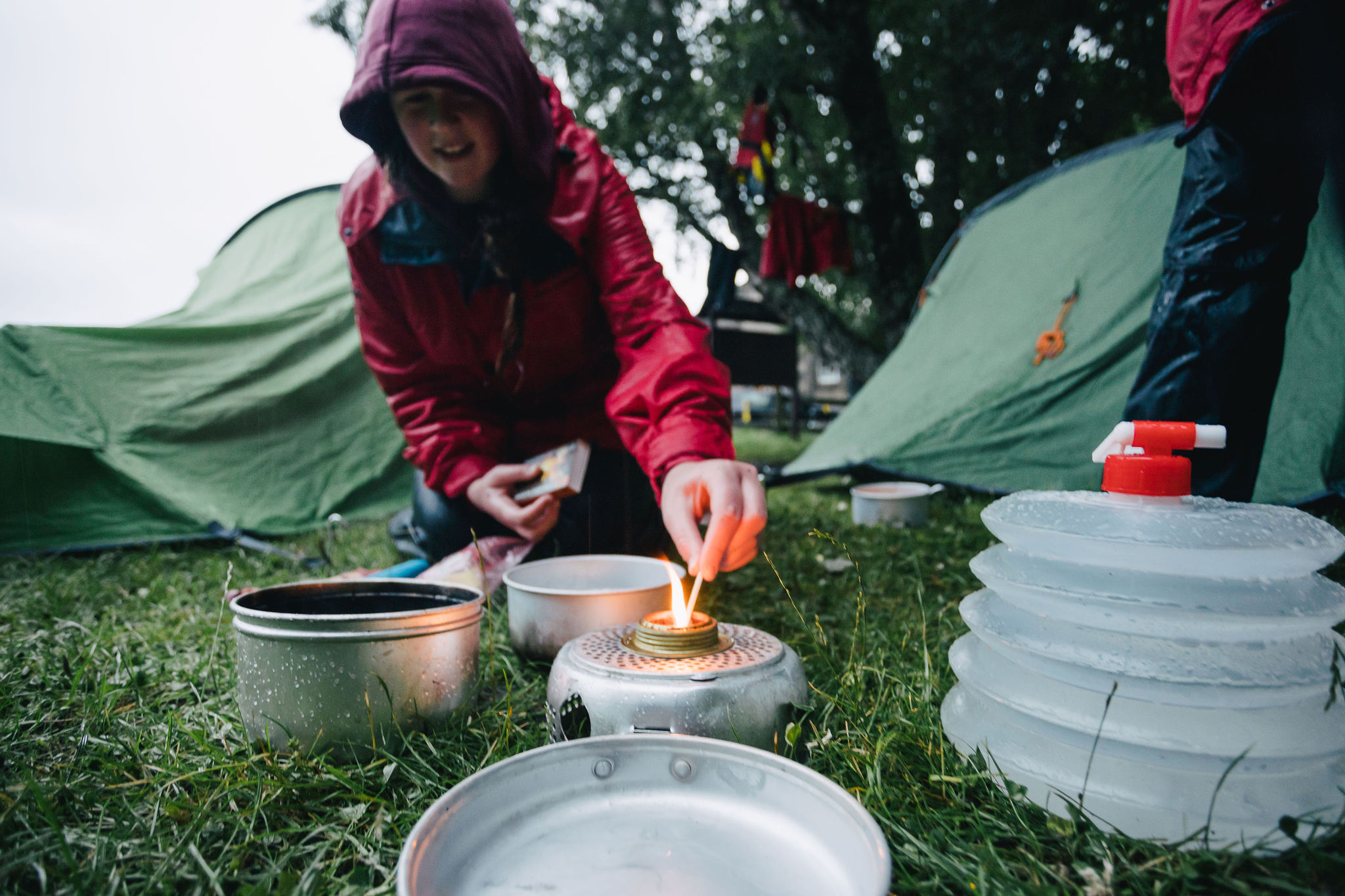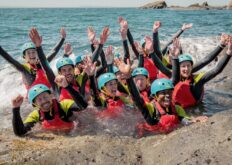A Guide to the Duke of Edinburgh Award- Bronze
The Duke of Edinburgh’s Award (DofE) is a prestigious youth development program that originated in the United Kingdom. It was founded by Prince Philip, Duke of Edinburgh, in 1956 and has since become an internationally recognized program aimed at empowering young people to develop skills for life and work.
The award program is open to young people aged 14 to 24, and it consists of three levels: Bronze, Silver, and Gold. Each level has four sections that participants must complete: Volunteering, Skills, Physical and Expedition.
Participants must complete each section and meet specific requirements to achieve their respective award level. The program aims to promote personal development, self-reliance, and a sense of responsibility among young people, preparing them for the challenges of adult life and fostering a spirit of adventure and exploration.

At My Adventure, we are a provider that delivers the expedition phase of the Duke of Edinburgh Award for schools and private groups across Scotland. With our extensive experience, we have come together to help answer the most asked questions in our Guide to the Duke of Edinburgh Award: Bronze.
- How do I get my Duke of Edinburgh bronze Award?
- How do I enrol for the Duke of Edinburgh Award?
- What kit do I need?
- How much does Duke of Edinburgh cost?
How do I get my Duke of Edinburgh Bronze Award?
Taking part in the DofE award isn’t easy- it takes commitment and hard work but it is simple to get started and after all your hard work, you’ll have earned your achievement and be left feeling proud.
The Duke of Edinburgh Award programme will give you the opportunity to:
- Design your own award
- Set your own goals and record your progress
- Volunteer & make a positive impact on lives
- Take part in an adventurous journey
- Learn practical and social skills for career development
- Connect with other Award participants at home or abroad
The Bronze Award is the first step to getting involved in the Duke of Edinburgh’s International Award and you can continue your Award journey by undertaking Silver and then Gold levels.
There are four stages in which you need to pick an activity to develop in. You can continue with activities you’re already taking part in, such as sports or volunteering, and start counting these towards achieving your Award, or your Award could be an opportunity to try something new and develop a passion for something different.
The four stages are:
Service
Through the Voluntary Service section you can volunteer in your community which gives you the opportunity to meet people and improve skills such as: team work, communication and self-confidence.
Here are some examples of how you could gain your volunteer stage:
- Supporting people in the community
- Youth work
- Community education and health education
- Supporting a local emergency service
- Charity work
- Environmental service
Physical Recreation
The Physical recreation part of the award encourages you to improve your health and fitness. You can choose to do a team sport, solo sport or a healthy activity- Be careful to not pick an activity that falls under the ‘skills’ category.
Here are some examples of where you could gain your Physical Recreation stage:
- Ball and racket sports
- Athletics
- Cycling
- Water sports
- Winter sports
- Martial arts
- Animal sports
- Fitness activities
- Adventure sports
- Street sports
Skills
The skill section aims for you to work on a new or existing skill- this section is all about self-improvement and giving yourself a sense of achievement
Here are some examples of what you could do for your skills section:
- Performance skills
- Media & Communications
- Animals
- Gaming
- Music
- Sports coaching
- Arts & Crafts
- Nature & Environment
Adventurous Journey
The adventurous journey section is a tough challenge and you may have to step outside of your comfort zone. You’ll have the opportunity to learn more about the wider environment, as well as to develop self-confidence and team work.
At My Adventure, we provide the Adventurous journey section of Bronze, Silver and Gold expeditions- we provide canoeing and hill walking expeditions for Duke of Edinburgh participants, find out more information about Duke of Edinburgh at My Adventure here.
Here are some examples of what you can do for your ‘Adventurous Journey’ stage:
- Exploring the natural world: glaciations, erosion, geology, coastal studies, river valleys, plant studies, bird studies or animal studies, insect studies
- Exploring historic land use: prehistoric man, historical periods
- To investigate the survival or extinction of a language
- Exploring human impact on the environment
- Carry out health surveys or health education in remote areas
- Complete a particularly demanding journey by foot, cycle or canoe/kayak, horseback, ski
- Investigate group dynamics in challenging conditions while on a camping trip
- Following an ancient pilgrimage trail

How do I enrol in the Duke of Edinburgh Award?
To enrol you must be part of a registered Duke of Edinburgh Award centre. Many schools, Youth organisations and Community groups are registered as award centres. Every award centre has a registered member of staff that is trained to support and mentor participants throughout the award.
Find your local award centre here
If you do not have the opportunity to complete your award through school or a local youth organisation, you can join a Duke of Edinburgh Virtual centre. Which is a programme set up in 2021, where participants can be appointed a local Award centre without being part of the group or school, and still be fully supported throughout the course of their award.
What kit do I need for the Expedition?

The equipment you need for the Duke of Edinburgh (DofE) Award program will vary depending on the specific activities you choose to undertake, as well as the level of the award you are participating in (Bronze, Silver, or Gold). However, there are some basic items that are generally recommended for participants in outdoor expeditions and adventurous journeys.
Check out our other blog to find some top-tips and best brands when buying your Duke of Edinburgh equipment: here.
Here is a general list of essential equipment:
Backpack
Choose a sturdy, comfortable backpack with adequate space to carry your essentials. Make sure it fits properly and has adjustable straps.
Clothing
Pack appropriate clothing for the weather conditions you expect to encounter. This may include quick-drying and moisture-wicking layers, waterproof jackets and pants, thermal base layers, and comfortable hiking boots or shoes.
Sleeping Bag and Mat
Depending on the nature of your expedition, you may need a sleeping bag and a sleeping mat for camping overnight. Make sure they are suitable for the expected temperatures.
Tent or Shelter
If your expedition involves overnight stays, you will need a suitable tent or shelter. Ensure it is lightweight, weatherproof, and easy to set up.
Navigation Tools
Carry a map and a compass, and make sure you are familiar with how to use them. Additionally, a GPS device can be helpful, but it should not be relied upon as the sole means of navigation.
First Aid Kit
Pack a well-stocked first aid kit with essential supplies for treating minor injuries and ailments. Make sure you are trained in basic first aid techniques.
Food and Water
Bring enough food and water to sustain you throughout the journey. Consider lightweight, nutritious, and non-perishable options, and ensure you have a way to purify water if necessary.
Personal Items
Include personal hygiene items, sunscreen, insect repellent, a whistle, a flashlight or headlamp with spare batteries, and a multi-tool or knife.
Before embarking on your journey, make sure to consult the specific equipment lists provided by the DofE organization, as requirements may vary based on location, season, and other factors. Additionally, it’s important to undergo appropriate training and preparation to ensure you are equipped with the necessary skills and knowledge to safely undertake your chosen activities.
How much does Duke of Edinburgh cost?
The DofE endeavours to keep your costs down so the current Welcome Pack, which includes the participation fee, is £25.50 for the Bronze and Silver, and £32.50 for the Gold Award. There may be additional costs for activities and Licensed Organisations that run the DofE, such as schools, may add a small fee to cover administration costs etc.
If a school, club or other operator charges you more than this, it is because they include additional costs to them, such as transport or expedition etc. They must tell you of any additional costs and what they cover.
Everyone receives a DofE Card to get discounts on things like kit and expeditions don’t need to be expensive.
MY Adventure and Intrepidus Outdoors are adventure tours and outdoor experience providers, both based in Edinburgh, Scotland. We specialise in private and open canyoning, coasteering, mountain biking and hill walking tours, and deliver these adventurous experiences across Scotland. We are also a provider of the Duke of Edinburgh Award Expeditions where we run bronze, silver and gold level awards for young people.
If you enjoyed this blog article and are looking for additional information about adventures from Edinburgh, we have published a number of other blogs:
- Duke of Edinburgh award: Essential equipment: here
- Top Tips for Backpacking in Scotland: here
- The best head torches for adventures in the outdoors: here
- The best breakfast spots in Edinburgh: here
- The best hotels and hostels in Edinburgh: here
- Stag Party Adventures Edinburgh: here
- Planning a Hen Party to Edinburgh: here
- Edinburgh Stag Party Ideas: here
- Hen Party Adventures Edinburgh: here
- Stag Party Outdoor Adventures Edinburgh Essentials: here
If you haven’t already seen it, check out the Intrepidus Outdoors Trip Advisor, Youtube channel, Visit Scotland page and blog to hear about how others found their outdoor adventures with us!




